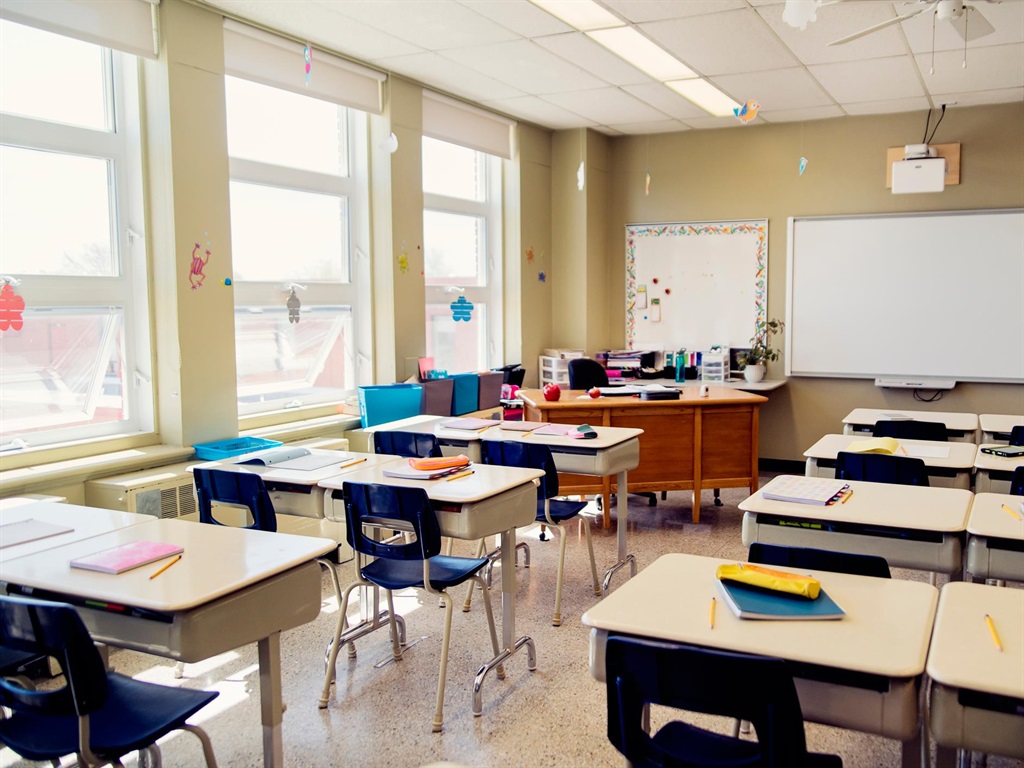
President Ramaphosa has announced that schools will close early, a few days ahead of the public school holidays scheduled to start on 20 March, and will stay closed until after the Easter weekend (10 - 13 April).
"As a sector we have determined that schools should resume on 14 April 2020; unless determined differently", reads a statement in this regard.
If that happens the department will communicate with parents. Current plans mean a loss of nine school days.
Additionally, the statement explains that to compensate for lost days the June holidays will be cut short by 7 days, and the September holidays will be shortened by 2 days.
"Once opened schools will be encouraged to extend tuition hours," the statement adds.
"It must be noted that this directive affects all schools; public ordinary schools, independent schools and private."
This makes for a solid break, minimising contact between teachers, pupils, parents and school staff.
Why does closing schools work?
Late last week, the Department of Education said that "schools, working together with local health departments, have an important role in slowing the spread of diseases to help ensure learners have safe and healthy learning environments."
After a small spate of short-term school closures last week, the government decided to proactively close schools early this week, in a bid to slow the spread of this new coronavirus.
Proactive vs Reactive
In an interview with Science Magazine, Nicholas Christakis, a social scientist and physician at Yale University, explained the difference between proactive and reactive school closures.
Proactive closures are when a school closes before there is confirmation of an infection, reactive is when a closure is implemented in response to a confirmed infection among school staff or pupils.
Proactive school closures have been shown to be one of the "most powerful nonpharmaceutical interventions" that can be deployed.
"Proactive school closures work like reactive school closures not just because they get the children, the little vectors, removed from circulation," he said.
Keeping the whole community safe
"It’s not just about keeping the kids safe. It’s keeping the whole community safe. When you close the schools, you reduce the mixing of the adults - parents dropping off at the school, the teachers being present," Christakis explains.
"When you close the schools, you effectively require the parents to stay home."
History has proven that this is an effective measure, and a number of studies support school closures to limit the spread of disease.
For an easy to understand explanation of social distancing and how it impacts the spread of disease, see here.
The local impact
However, in South Africa we have some unique situations that make school closures particularly challenging.
Extended school closures are inconvenient for many working parents, as they now need to take extra time off work to care for children.
There is also the potential for increased risks to the elderly, as in South Africa many families rely on grandparents to be childminders.
Learn more about those topics here:
- Coronavirus | I'm a nanny and I can't go to work. Can I get fired?
- Working parents, need time off work during the coronavirus pandemic? Here are your rights
- Coronavirus: As schools close, are the kids a risk to their grandparents?
How long should schools close for?
It seems there isn't an agreed period of time that is the most effective in stopping the spread of an illness.
Internationally, many schools have been closed for between two and eight weeks, so far, in response to the Covid-19 pandemic.
For now, our government has shut schools until after the Easter weekend, but that could change based on the rates of infection over the coming weeks.
Stay up to date on everything #coronavirus here
Compiled for Parent24 by Elizabeth Mamacos
Chat back:
Tell us how you feel about all of this, from explaining the outbreak to your kids, to keeping them home from school for longer.
Anonymous contributions are welcome.
WhatsApp: Send messages and voicenotes to 066 010 0325
Email: Share your story with us via email at chatback @ parent24.com




 Publications
Publications
 Partners
Partners











